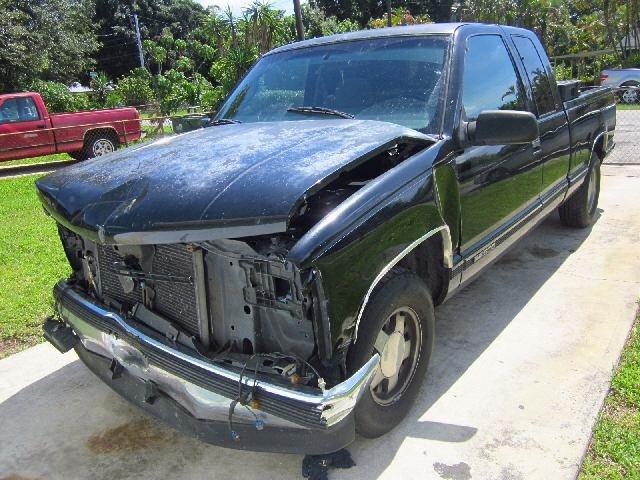 Insurance companies selling coverage in Florida have a fiduciary obligation to protect their insureds from judgments exceeding the limits of their insurance policies. Berges v. Infinity Ins. Co., 896 So.2d 665 (Fla. 2004). The obligation was well articulated in Boston Old Colony Insurance Co. v. Gutierrez, 386 So.2d 783 (Fla.1980):
Insurance companies selling coverage in Florida have a fiduciary obligation to protect their insureds from judgments exceeding the limits of their insurance policies. Berges v. Infinity Ins. Co., 896 So.2d 665 (Fla. 2004). The obligation was well articulated in Boston Old Colony Insurance Co. v. Gutierrez, 386 So.2d 783 (Fla.1980):
An insurer, in handling the defense of claims against its insured, has a duty to use the same degree of care and diligence as a person of ordinary care and prudence should exercise in the management of his own business. For when the insured has surrendered to the insurer all control over the handling of the claim, including all decisions with regard to litigation and settlement, then the insurer must assume a duty to exercise such control and make such decisions in good faith and with due regard for the interests of the insured…. The insurer must investigate the facts, give fair consideration to a settlement offer that is not unreasonable under the facts, and settle, if possible, where a reasonably prudent person, faced with the prospect of paying the total recovery, would do so. Because the duty of good faith involves diligence and care in the investigation and evaluation of the claim against the insured, negligence is relevant to the question of good faith.
Ordinarily, “[t]he question of failure to act in good faith with due regard for the interests of the insured is for the jury.” Gutierrez, 386 So.2d at 785; see also Campbell v. Gov’t Employees Ins. Co., 306 So.2d 525, 530-31 (Fla.1974) (“[R]easonable diligence and ordinary care [are] material in determining bad faith. Traditionally, reasonable diligence and ordinary care are considerations of fact — not of law.”).
In Florida’s civil justice system, unless a court is sitting as the trier of fact, which is the exception rather than the rule, the court’s role is typically limited to ruling on matters of law, leaving fact questions to be resolved by juries. Only when pleadings and evidence properly filed show that there is no genuine issue as to any material fact, is the court supposed to enter judgment as a matter of law. This is called Summary Judgment. See FRCP 1.510. Given the importance of juries in the civil justice system, the procedure is supposed to be used sparingly and with caution. (Citations omitted because they are so plentiful.)
Unfortunately, some Federal court trial judges have chosen to ignore this admonition. What follows is a discussion of some recent Federal Court insurance bad faith cases.
RULINGS FAVORING INSURANCE COMPANIES
Harris v. GEICO General Ins. Co., 961 F. Supp. 2d 1223 (S.D. Fla. 2013). The jury returned a verdict for Harris, the insured, concluding that Harris proved to a preponderance of the evidence that Geico acted in bad faith in failing to settle her claim during the 60-day safe harbor period (Fl. Stat. § 624.155(1)(a), (b)(1)). Geico moved for judgment as a matter of law during trial and renewed its motion subsequent to the jury verdict. Federal trial court judge Kenneth L. Ryskamp granted GEICO’s motion. He made the following points: (1) Fusion surgery was performed after the bad faith action was filed; (2) GEICO was not provided with evidence of a permanent impairment before the bad faith action was filed; and (3) the statutes (Fl. Stat. § 627.727(10) and § 624.155) do not say that the damages are what a jury awarded in an underlying liability action. See Geico General Ins. Co. v. Bottini, 93 So.3d 476 (Fla. 2d DCA 2012) (Altenbernd, J., concurring); King v. Government Employees Ins., Co., 2012 WL 4052271, No. 8-10-cv-977-T030-AEP (M.D.Fla. Sept. 13, 2012).
Coulter v. State Farm Mut. Auto Ins. Co., No. 4:12cv577-WS/CAS (N.D. Fla. 2014). The trial court entered Summary Judgment for State Farm. While the facts, which were convoluted, were not so much in dispute, the trial judge nevertheless took it upon himself to rule that the carrier’s actions did not amount to bad faith as a matter of law. The court’s action flies in the face of black letter law that “[t]he question of failure to act in good faith with due regard for the interests of the insured is for the jury.” The court’s opinion sets forth the facts in great detail. It’s an interesting read for how everyday issues are handled.
Houston v. Progressive American Ins. Co., No. 8:13-cv-194-T-35AEP (M.D. Fla. 2014). A multi-claimant case with limited insurance coverage involving varying degrees of injuries and a global settlement. The most seriously injured claimant alleged that Progressive acted in bad faith by scheduling a global settlement conference rather than tendering the policy’s $10,000 per person limit upon learning of her injuries. The court disagreed, granting Summary Judgment in Progressive’s favor. The court did, however, concede that there could be instances “in which the injuries to a specific victim are so grave, the injuries to the remaining potential claimants are so minor, and the concomitant documentation and information before the insurer of those injuries is so clear, that a duty arises on the part of the insurer to jettison the global settlement approach, which it unquestionably has the discretion to choose [italics added for emphasis], and make a full tender to the gravely injured victim.”
Continue reading
 Florida motor vehicle owners beware! You can be held to account for accidents caused by other drivers even when you are nowhere near the crash scene.
Florida motor vehicle owners beware! You can be held to account for accidents caused by other drivers even when you are nowhere near the crash scene. Florida Injury Attorney Blawg
Florida Injury Attorney Blawg










